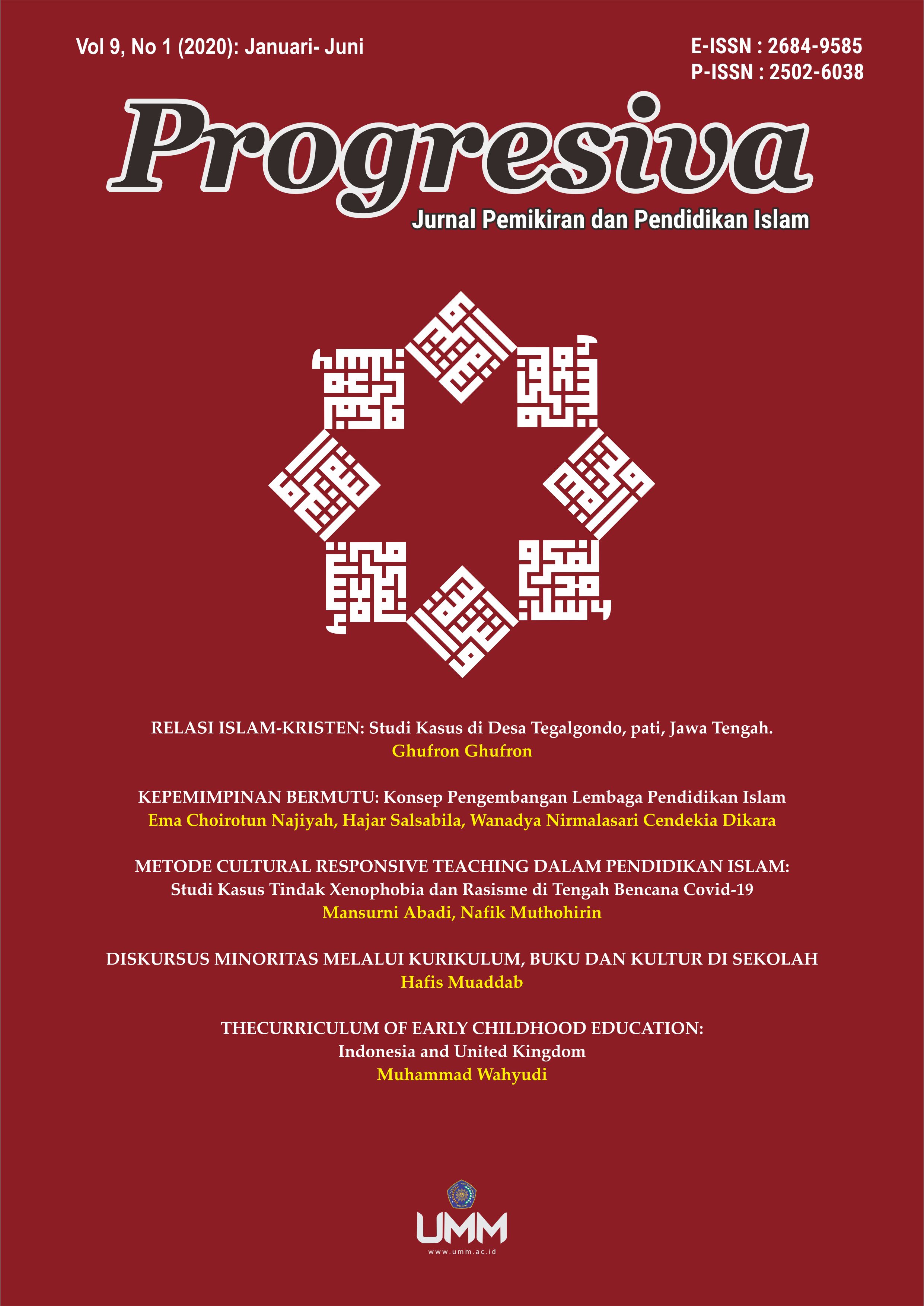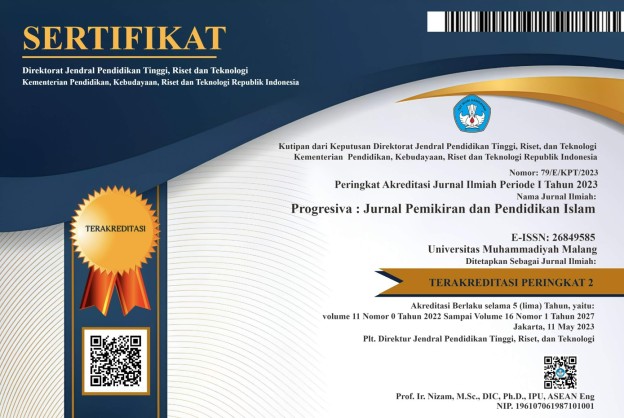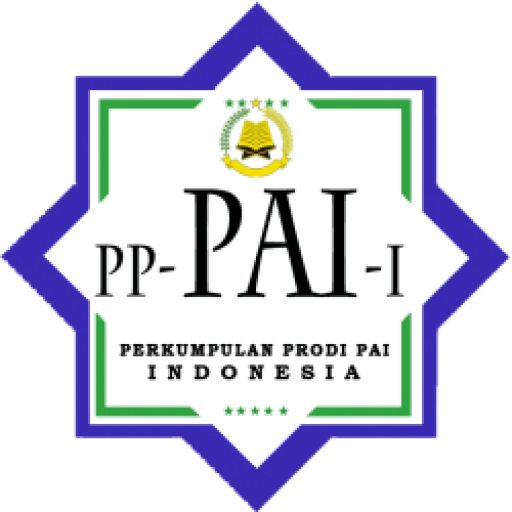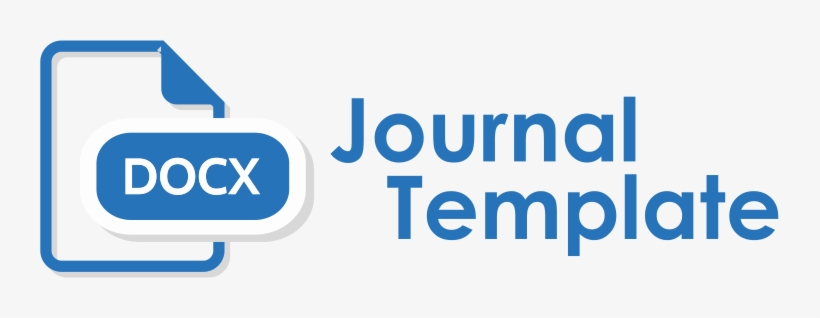The Curriculum of Early Childhood Education: Indonesia and United Kingdom
DOI:
https://doi.org/10.22219/progresiva.v9i1.12522Keywords:
Curriculum, Early Childhood Education, Indonesia, UKAbstract
This paper aims to investigate the curriculum of early childhood education in Indonesia and the United Kingdom (UK) and how they pertain to each other. Library research was conducted to gather information intended. The findings confirm that the curriculum of early childhood education in Indonesia applies curriculum 2013 which consists of aspect development of curriculum structure, and the learning process with a scientific approach. While the UK applies the curriculum according to the statutory Early Years Foundation Stage (EYFS) framework which recognizes the importance of play and a balance of adult-led and child-initiated activities. Moreover, there is a basic difference between these two curriculum aspects, which Indonesia includes the religious and moral values to the body of the curriculum, while the UK does not. However, both Indonesia and UK are closely similar which promotes a balance between the development of academic and literacy skills, socio-emotional development, and creative and physical development.
Downloads
References
Cherry, Kendra. 2018. John Dewey Biography. Philosopher and Educator. Verywellmind.
Retrived from http://tiny.cc/ec8ehz
Cherry, Kendra. 2019. A Biography of Lev Vygotsky, One of the Most Influential Psychologists.
Verywellmind . Retrived from http://tiny.cc/70zdhz
Cherry, Kendra. 2019. The 4 Stages of Cognitive Development. Background and Key Concepts
of Piaget's Theory. Verywellmind. Retrived from http://tiny.cc/i17ehz
Department of Education. 2017. Statutory framework for the early years foundation stage -
Setting the standards for learning, development and care for children from birth to five.
Retrived from https://bit.ly/37XZieM
Education GPS. OECD. 2019. United Kingdom. Overview of the education system (EAG 2019).
Retrived from http://bit.do/fj7bg
GOV.UK. 1. nd. Early years foundation stage.
GOV.UK. 2. n.d. Standards and Testing Agency.
Irinyi, M. 2017. Montessori Early Childhood Education: The Foundation of the Method.
North America Montessori Center. Lee, Shen-Li. 2009. Early Childhood Education – What is
the Montessori Method?.
Leong, D.J., Elena Bodrova . 2019. Pioneers In Our Field: Lev Vygotsky - Playing to Learn.
Scholastic.
Md Khair, K.B. (1999). Falsafah dan konsep pendidikan menurut imam al-Ghazali [education
philosophy and concepts according to imam al-Ghazali], Project paper. University of
Malaya, Kuala Lumpur.
Melhuish, Edward. 2013. Research on Early Childhood Education in the UK.
OECD, Country Note. 2019. Education at a Glance: OECD Indicators..
Permendikbud Tahun 2014 Nomor 146. Tentang Kurikulum 2013 Pendidikan Anak Usia Dini.
Permendikbud Tahun 2014 Nomor 146. Tentang Kurikulum 2013 Pendidikan Anak Usia Dini.
Lampiran 1.
Permendikbud Tahun 2014 Nomor 146. Tentang Kurikulum 2013 Pendidikan Anak Usia Dini.
Lampiran IV.
Permendikbud Tahun 2014 Nomor 146. Tentang Kurikulum 2013 Pendidikan Anak Usia Dini.
Lampiran V.
Rahino, Rizky Prabowo. 2018. Peningkatan Kualitas PAUD dan Dikmas Seluruh Indonesia.
Tribun Pontianak.
Roberts, N. 2018. The School Curriculum in England. House of Commons Library.
Briefing Paper. Retrived from http://tiny.cc/ofllhz
Robinson, Allana. 2018. Early Childhood Theorists: John Dewey. Uncomman sense Parenting
with Allana Robinson. Retrived from http://bit.do/fj6Wy
STA. 2018. Early years foundation stage profile. 2019 handbook. Retrived from
Stapa, Z., Ahmad. M. I,. & Noranizah, Y. 2012. Faktor Persekitaran Sosial dan hubungannya
dengan Pembentukan Jati Diri (Social Environment Factor and Their Relation to
Identity Formation). Jurnal Hadhari Special Edition (2012).
Sulaiman, Adibah, Ezad A.J., N.C.Noh. 2014. Islamic Environment in Child Development
According to the Views of Imam al-Ghazali. Mediterranean Journal of Social Sciences.
Vol 5 No 29. MCSER Publishing, Rome-Italy.


















